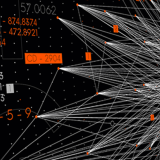EU context
Необходимо е авторите на политиките да придобият знанията, които ще им помогнат да разрешат редица въпроси във връзка с ефективното регламентиране, гарантирането на социална защита в най-широкия смисъл и постигането на баланс между изискванията на дружествата, обществото и отделния човек при пълното оползотворяване на цифровизацията.
През 2015 г. Европейската комисия прие стратегия за цифров единен пазар, подчертавайки нейното място сред политическите си приоритети. Чрез стратегията могат да бъдат създадени цифрови възможности за гражданите и предприятията, както и да се определят цели за укрепване на позицията на ЕС като световен лидер в цифровата икономика. Стратегията си поставя за цел да разшири достъпа до информация, да създаде работни места за хората с подходящи умения за работа с цифрови технологии и да трансформира обществените услуги. С разрастването на икономиката на сътрудничество в ЕС Комисията се опитва да стимулира развитието на нови и иновативни услуги, като същевременно осигурява подходящи мерки за защита. В съобщението на Комисията от 2016 г. относно европейската програма за икономика на сътрудничество ясно са представени правилата и препоръките за политиките в тази област по отношение на гражданите, предприятията и държавите — членки на ЕС.
Дейност на Еurofound
Eurofound разглежда по-широкото отражение върху условията на труд, регулирането на труда и други области вследствие на увеличаването на мащаба и обхвата на цифровите технологии на пазара на труда.
Изследва се въздействието върху заетостта на технологиите, които променят из основи сферата на услугите. Освен това Eurofound изследва ефекта върху пазара на труда на икономиката, основана на интернет платформи, и по-специално ефекта на заетостта чрез интернет платформи. Наред с това текат изследвания върху условията на труд и заетост при лицата на мобилна заетост, основана на ИКТ.
Ще бъде разгледано естеството на работата и заетостта в ерата на цифровите технологии с акцент върху:
Основни приноси
В съвместен доклад с Международната организация на труда (МОТ) относно концепцията за работа по всяко време и на всяко място се разглежда въздействието, което работата от разстояние и мобилната заетост, основана на ИКТ, имат върху някои елементи от условията на труд.
Серията от семинари на Фондацията на Eurofound е възможност за правителствата, професионалните организации и работодателите да обсъдят развитието на политиките на ЕС в областта на социалните въпроси, заетостта и труда. През 2016 г. акцентът беше поставен на въздействието на цифровизацията върху труда и съставянето на национални програми за по-добро прилагане на промените във връзка с цифровите технологии.


























